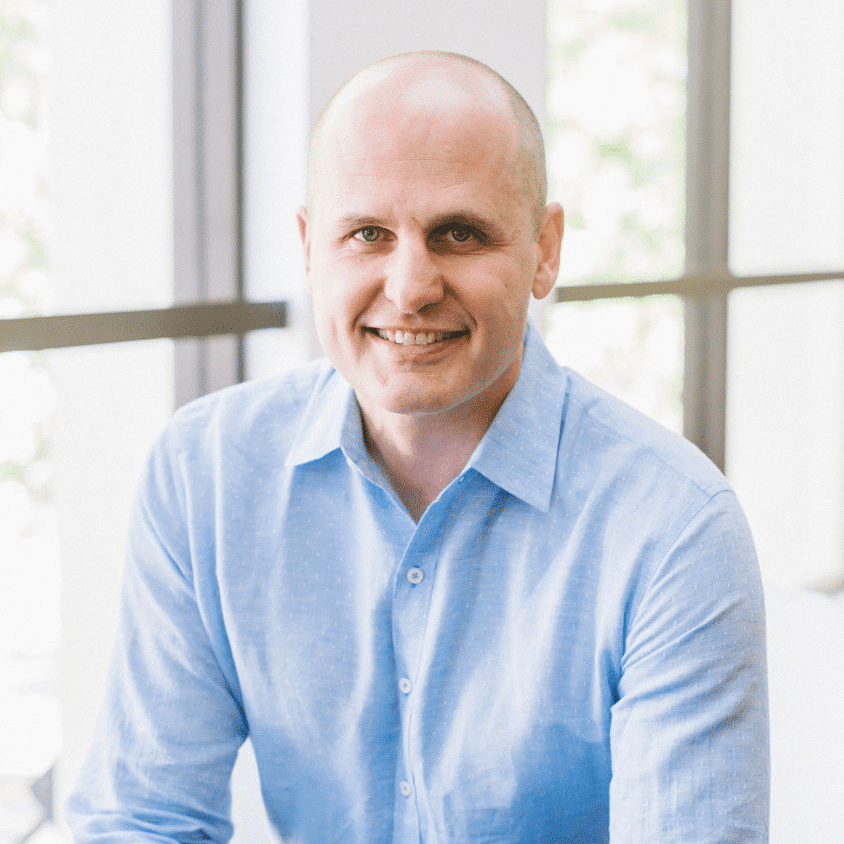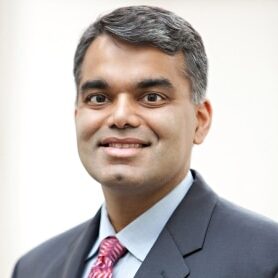Transformation—it’s a word that’s become synonymous with the HR function, especially in the last few years. But are today’s HR leaders really up to the challenge?
HR veteran Laszlo Bock thinks most CHROs today have some significant work to do before they can be truly transformative. Bock—who led Google’s people operations for more than a decade before co-founding two tech companies—is tackling this challenge with the newly announced Berkeley Transformative CHRO Leadership Program.
Bock co-designed and will co-lead the program with Jennifer Chatman and Sameer Srivastava, who are professors at UC Berkeley’s Haas School of Business and who co-direct the Berkeley Center for Workplace Culture and Innovation. The program’s first cohort will launch in October, with participants graduating in the spring.
Bock—who holds the distinction of having the most HR professionals who’ve worked for him go on to become CHROs (about 150)—is eager to marry his insights and experience in the profession with the expertise of Berkeley’s faculty and external partners like McKinsey and Heidrick & Struggles.

While Bock says there are many standout CHROs in the profession today, few can hold a candle to some of the legendary HR execs of the 1980s—at places like GE and Citi—who he says had a “disproportionate influence” on their organizations.
“There aren’t many today who are truly transforming their companies—where, when they retire, their CEOs go, ‘Wow, this person left a lasting imprint, and we’re better for it,’ ” Bock says.
While there are executive education programs at campuses around the country, many seek to introduce future CHROs to a “little bit of everything” they may encounter in the role. The Berkeley program, instead, has a more streamlined goal.
“This is very focused,” Bock says, “on what we think is the difference between good and truly transformational HR.”
4 must-haves for transformative CHROs
Bock has identified four primary areas where CHROs need to enhance their acumen—and around which the Berkeley programming is built:
1. Analytical and technical skills
Particularly as emerging technology delivers deeper people analytics to HR, today’s CHROs need a more nuanced understanding of analytics—especially distinguishing between correlation and causation, Bock says.
Take employee engagement surveys, for instance. Often, organizations make changes based on survey data. At the end of the year, if the organization sees good outcomes, they may attribute it to the survey-driven shifts. “But if there’s no change, they go, ‘Eh, who knows? It’s probably just random noise,’ ” Bock says.
Similarly, HR execs often overlook the random variations that occur in performance management—tying precise salary or bonus levels to ratings that may be impacted by unrelated factors like recency bias, such as a manager assigning a higher rating to someone with whom they recently had a successful meeting.
Bock says people analytics gives HR a “tool to unleash” and explore those complexities, creating fairer, more realistic, forward-thinking workplaces.
2. Elite consulting-style problem-solving
If most HR leaders are given the directive to hire 10% more people in the next year, they would likely start by hiring 10% more recruiters. However, transformative CHROs would be driven by consulting-style approaches, such as the MECE principle: mutually exclusive, collectively exhaustive.
“So, the way you would look at that,” Bock explains, “is that it’s not that we need 10% more recruiters, but rather, what are the ways we get candidates? Some of that is through recruiters, but also through referrals, executive search firms.”
Such a mindset would also drive CHROs to consider the efficiency of how candidates move through the pipeline—”If we improve the rate at which people go from the first stage of interviewing to the second stage, we don’t need to interview more people,” Bock notes—as well as other factors that could affect workforce size, like retention.
“That problem-solving, structured approach isn’t something you get trained in, in HR,” Bock says, noting experts from McKinsey—which pioneered the MECE approach more than 50 years ago—will train Leadership Program participants in this methodology.
3. Deeper core HR expertise
As the HR function rapidly evolves, with a greater emphasis on its strategic contributions to the business, HR leaders of tomorrow will need to develop critical understanding of how these shifts are impacting their responsibilities.
For instance, one of the biggest focus areas for many leaders today is artificial intelligence and how it transforms workplaces, says Srivastava. A number of Berkeley faculty members whose research specializes in this area will present during the Leadership Program. The evolution of hybrid and remote work is another hot topic that will be covered, including by Stanford’s Nick Bloom. The program will also address more “evergreen” HR topics that transformative CHROs need to have a deep understanding of, including executive compensation and working with boards of directors.
To give participants a realistic preview of the issues they may encounter in the top HR role, Heidrick & Struggles will present during the course, bringing along CEOs who can share “what they really want from their HR people,” Bock says.
4. Cross-company mentorship
Once leaders make it to the C-suite, “everyone’s super-friendly,” Bock says—CHROs will likely feel empowered to call anyone, ask for advice and leverage other leaders’ talents. But, at the level below the C-suite, those networks aren’t usually as activated, he says, which can cause incoming HR leaders to be working and learning in silos.
Transformative CHROs: catalysts for change
Giving future CHROs the opportunity to learn and network alongside other HR professionals across industries is a key goal of the CHRO Leadership Program.
During the six-month program, participants—Bock estimates about 65 HR professionals will take part in the first cohort—will work in small teams to address an actual business problem at one of their organizations. That format, Bock says, will help bridge the “learning-doing gap,” allowing learners to apply the material they’re being taught in the program—from problem-solving to financial statement analyses, for instance—to a real-life situation.
This work will complement the “individual layer,” focusing on each leader’s professional development, including through coaching. While much of the learning content will be universal for all participants, they also have the opportunity to take advantage of Berkeley’s entire library of specialized courses for individualized learning.
“If someone is in a manufacturing company and says, ‘I want to get up to speed on supply chain management,’ there’s a six-week program at Berkeley that they can take as well,” Bock says. “In addition to the journey people are going on together, there’s a ton of choose-your-own-adventure.”
Participants, who are expected to hail from around the globe, will come together at Berkeley Oct. 9-11 to kick off the course and then take part in online learning, including through live virtual lectures, for the bulk of the program, with another in-person gathering at its conclusion. The organizers expect the program to run at least annually, and perhaps several times a year, with a goal of creating a community of “change agents” who can stay in touch with one another and the program, including through future mentorship and coaching opportunities.
The community is already being built through the Leadership Program’s advisory board, which is comprised of 17 CHROs of leading global companies, including Pfizer, Nike, J&J, Schneider Electric, Home Depot, Goldman Sachs, GM and more.

Srivastava says the program has the potential to have deep ripple effects.
“We think about the CHRO as being the chief culture officer who’s helping to transform workplace culture. Right now, there are a lot of challenges with mental health and employee wellbeing and a lot of that is because of toxic workplace cultures, which are very hard to change,” he says. “But a well-equipped CHRO can be a catalyst for change, and we hope this program produces such leaders.”
Bock adds that as those leaders take the helm at their respective organizations, he envisions them strengthening the strategic positioning of the HR function profession-wide.
“The ideal outcome [of the program] would be that the practice of human resources, in every single company, is viewed as something where we’re making a huge impact on the business—that the people function becomes the primary function the CEO turns to,” Bock says. “Because we’re just trying to make work better. And this is one way to do it.”
For more information about the Berkeley Transformative CHRO Leadership Program, click here.
The post The 4 traits former Google exec Laszlo Bock says today’s CHROs are missing appeared first on HR Executive.